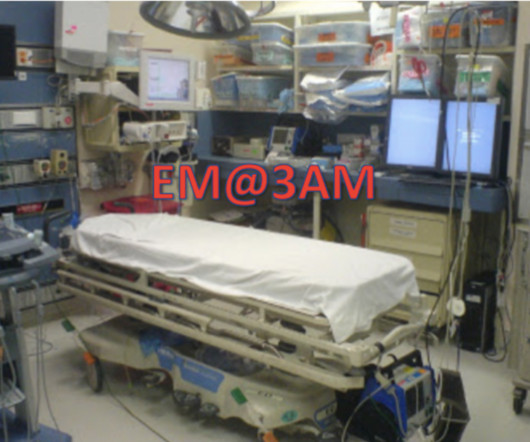EM@3AM: Leukopenia
EMDocs
JANUARY 25, 2025
PCP Pneumonia, Sepsis) can be discharged with initiation of Antiretroviral Therapy in consultation with Infectious Disease (ID) physician with full ID evaluation outpatient. 2011 Feb 15;52(4):e56-93. Clin Infect Dis. doi: 10.1093/cid/cir073. PMID: 21258094. 2nd edition.














Let's personalize your content